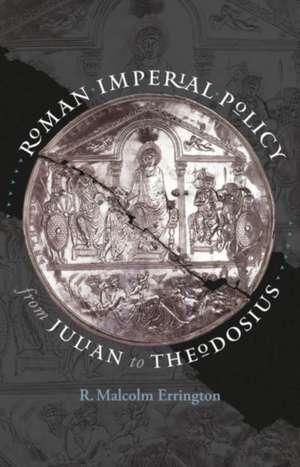Roman Imperial Policy from Julian to Theodosius: Studies in the History of Greece and Rome
Autor R. Malcolm Erringtonen Limba Engleză Paperback – 30 apr 2020
Preț: 306.36 lei
Nou
Puncte Express: 460
Preț estimativ în valută:
58.63€ • 60.98$ • 48.40£
58.63€ • 60.98$ • 48.40£
Carte tipărită la comandă
Livrare economică 12-26 aprilie
Preluare comenzi: 021 569.72.76
Specificații
ISBN-13: 9781469661667
ISBN-10: 1469661667
Pagini: 352
Dimensiuni: 140 x 216 x 21 mm
Greutate: 0.45 kg
Editura: The University of North Carolina Press
Seria Studies in the History of Greece and Rome
ISBN-10: 1469661667
Pagini: 352
Dimensiuni: 140 x 216 x 21 mm
Greutate: 0.45 kg
Editura: The University of North Carolina Press
Seria Studies in the History of Greece and Rome
Notă biografică
R. Malcolm Errington is professor of ancient history at the Philipps-Universitat in Marburg, Germany. He is author of three other books, including A History of Macedonia.
Descriere
Although the imperial policies during the late Roman Empire are generally understood to have been driven by the religious and ideological aims of the emperors, R. Malcolm Errington argues that the emperors were actually much more pragmatic in their decision making than has previously been assumed.














